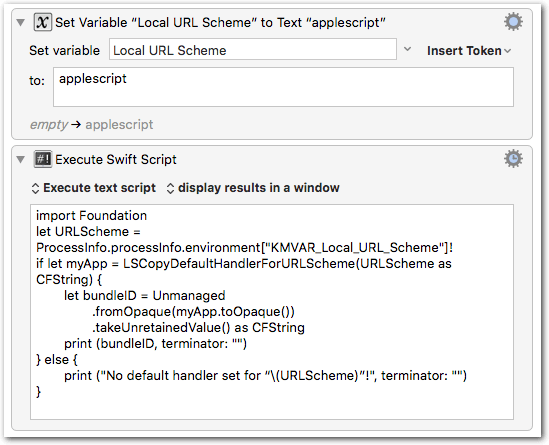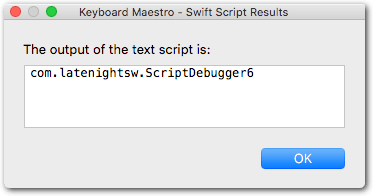Just to mention it:
If it’s about getting the default handler for an URL scheme you can also get it from Launch Services via Swift:


Just to mention it:
If it’s about getting the default handler for an URL scheme you can also get it from Launch Services via Swift:

